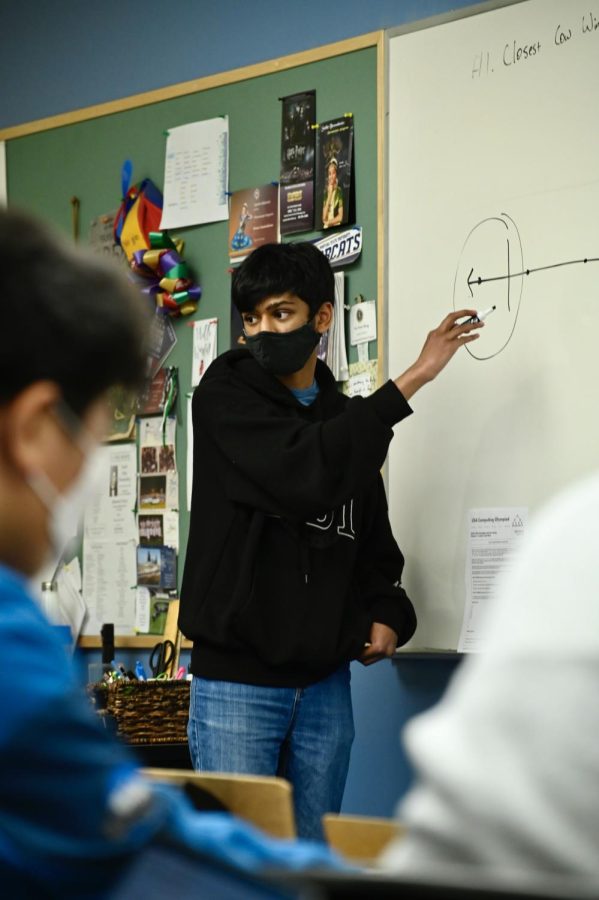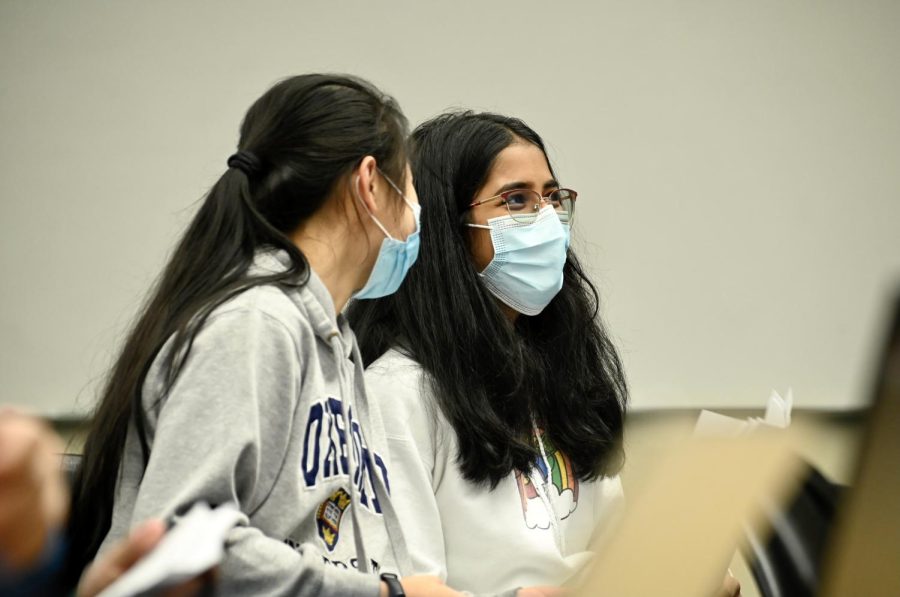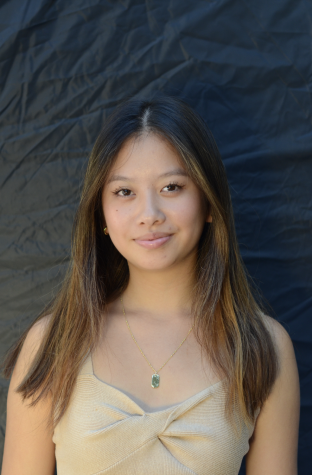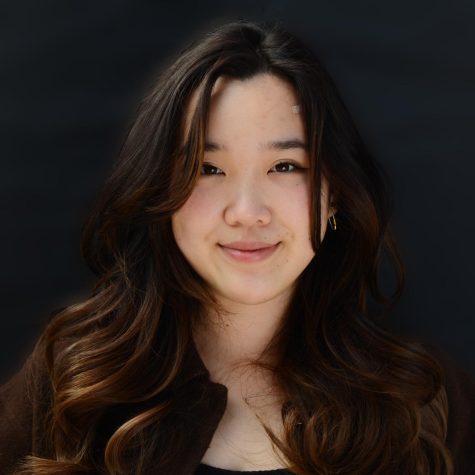Programming Club officers host third lecture in ongoing series about competitive computer science
Kunal Jain (11) reviews the answers to the silver level questions from the last USACO competition. Kunal has been an officer of Programming Club for the past year.
January 12, 2022
The Harker Programming Club (HPC) hosted the third installment of their lecture series last Wednesday during long lunch, where officers explained questions and offered problem-solving tips for the United States of America Computing Olympiad (USACO).
HPC officers Jacob Huang (11), Rishi Cherukuri (11) and Kunal Jain (11), members of the lecture team, each discussed two problems from the most recent USACO contest, which took place in late December. They focused on the bronze and silver sections — levels that include more beginner-friendly and intermediate algorithms, respectively. The officers explained relevant concepts such as casework and the two pointers technique, which is usually used to search for specific values within a larger group.
“We went over all the solutions to the bronze and silver problems, because we know that just reading the solution guides on USACO’s website is not always the most fun experience,” Jacob said. “We tried to make [the solutions] more accessible. [The participants] actually caught on really fast.”
The lecture team held their first session on Oct. 5 focused on introducing Olympiad programming and available resources. The officers discussed rectangle geometry during their second session on Oct. 28, and they covered big-O notation, which is used to describe the time and memory requirements of specific algorithms during their third session on Dec. 7.
“Actually, one of the questions [that the officers covered] used a concept called graphs that I was actually not familiar with,” Sophia Zhu (9), who frequently competes in USACO and attended the silver section lecture, said. “[Before the lecture,] I couldn’t even understand what the question was really looking for. Now, I know there are data structures out there that can help me solve it.”
The team hopes their series can help students move forward in the USACO contests, since competitors must pass the bronze division before advancing to the silver, gold and platinum levels.
“I try to help people out because a lot of people I know are either stuck in bronze or silver, since the difficulty has gotten a lot in recent years,” Rishi said. “I think people think that competitive programming is something that they can’t do, just because it seems hard, but I think it’s pretty accessible to everyone.”
Additionally, Jacob, Rishi and Kunal started the lecture series to attract underclassmen to competitive programming, which may be intimidating at first. Susan King, upper school computer science teacher and HPC adviser, admires the officers’ initiative to bring more resources for the olympiad to the community.
“I think the lecture series comes from this passion and interest in the national competition,” King said. “To the best of my knowledge, the Harker teachers do not focus on the algorithms that tend to be used in competitions because there isn’t room for some of these other algorithms. I think it’s great that the kids want to fill it in.”


















![“[Building nerf blasters] became this outlet of creativity for me that hasn't been matched by anything else. The process [of] making a build complete to your desire is such a painstakingly difficult process, but I've had to learn from [the skills needed from] soldering to proper painting. There's so many different options for everything, if you think about it, it exists. The best part is [that] if it doesn't exist, you can build it yourself," Ishaan Parate said.](https://harkeraquila.com/wp-content/uploads/2022/08/DSC_8149-900x604.jpg)




![“When I came into high school, I was ready to be a follower. But DECA was a game changer for me. It helped me overcome my fear of public speaking, and it's played such a major role in who I've become today. To be able to successfully lead a chapter of 150 students, an officer team and be one of the upperclassmen I once really admired is something I'm [really] proud of,” Anvitha Tummala ('21) said.](https://harkeraquila.com/wp-content/uploads/2021/07/Screen-Shot-2021-07-25-at-9.50.05-AM-900x594.png)







![“I think getting up in the morning and having a sense of purpose [is exciting]. I think without a certain amount of drive, life is kind of obsolete and mundane, and I think having that every single day is what makes each day unique and kind of makes life exciting,” Neymika Jain (12) said.](https://harkeraquila.com/wp-content/uploads/2017/06/Screen-Shot-2017-06-03-at-4.54.16-PM.png)








![“My slogan is ‘slow feet, don’t eat, and I’m hungry.’ You need to run fast to get where you are–you aren't going to get those championships if you aren't fast,” Angel Cervantes (12) said. “I want to do well in school on my tests and in track and win championships for my team. I live by that, [and] I can do that anywhere: in the classroom or on the field.”](https://harkeraquila.com/wp-content/uploads/2018/06/DSC5146-900x601.jpg)
![“[Volleyball has] taught me how to fall correctly, and another thing it taught is that you don’t have to be the best at something to be good at it. If you just hit the ball in a smart way, then it still scores points and you’re good at it. You could be a background player and still make a much bigger impact on the team than you would think,” Anya Gert (’20) said.](https://harkeraquila.com/wp-content/uploads/2020/06/AnnaGert_JinTuan_HoHPhotoEdited-600x900.jpeg)

![“I'm not nearly there yet, but [my confidence has] definitely been getting better since I was pretty shy and timid coming into Harker my freshman year. I know that there's a lot of people that are really confident in what they do, and I really admire them. Everyone's so driven and that has really pushed me to kind of try to find my own place in high school and be more confident,” Alyssa Huang (’20) said.](https://harkeraquila.com/wp-content/uploads/2020/06/AlyssaHuang_EmilyChen_HoHPhoto-900x749.jpeg)









